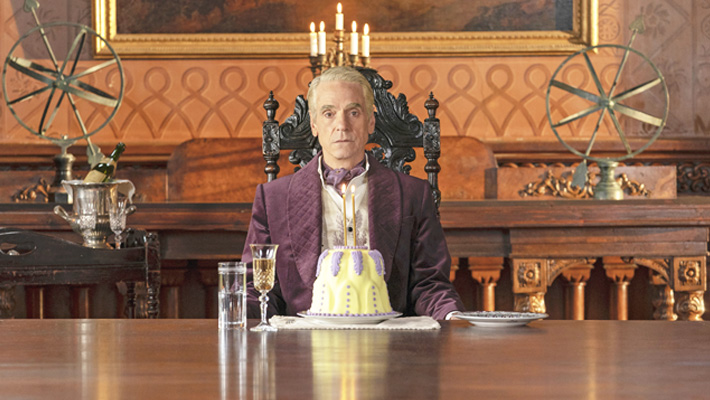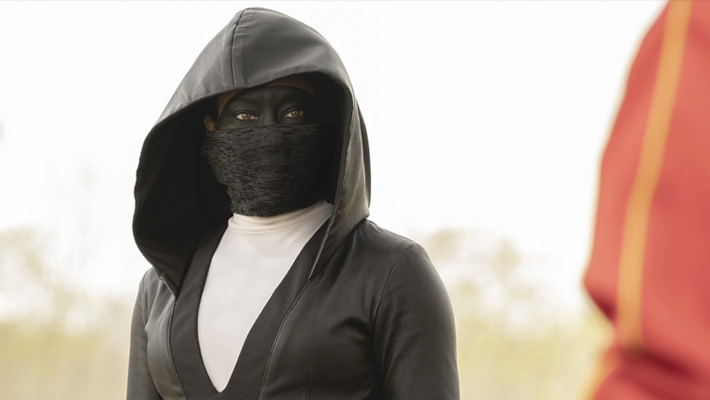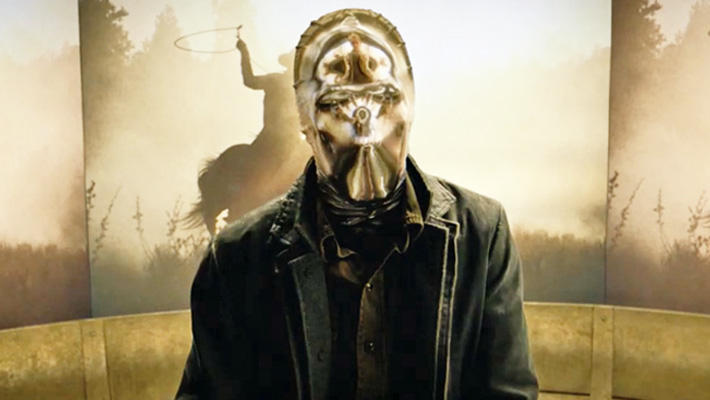So much could have gone wrong with HBO’s Watchmen series on the way to the small screen. In fact, so much could’ve and did go wrong with Zack Snyder’s 2009 movie, and perhaps folks (including myself) have been a little too harsh over the years in regards to it. I’m not behaving generously by admitting that, either, but it’s more about the possibility of Snyder setting himself up for almost certain failure. Seriously, the groundbreaking, 1980s graphic novel from writer Alan Moore and artist Dave Gibbons was widely considered unfilmable and for good reason; even before Snyder’s effort, multiple others attempted and failed to make a film (various incarnations almost starred Tom Cruise and Arnold Schwarzenegger, the latter as the very blue and very naked radioactive loverboy himself, Doctor Manhattan) out of the comic book series.
Inarguably, the comic series was ambitious when Moore wrote it — injected with multiple narrative techniques and filled with decades of history, subtext, context, and complex characters — so that adapting it (in three hours, nine episodes, multiple seasons, or however) is an unavoidably even more ambitious task. And that’s why HBO’s take on the vigilante-centered story feels even more incredible, simply because Watchmen not only succeeds but does so in the face of intimidating odds. So, here’s where I could simply provide assurances with a gimmicky statement like, “Who’s watching these Watchmen? You should be.” And then I could wander off and go watch the six episodes provided to critics again. Because time is scarce, tick-tock.
Well, that bare-bones tactic is not gonna fly here. So let’s talk about how this series matches up to expectations — and this stands whether you’ve read the graphic novel or watched the Snyder movie or have zero background — because the Damon Lindelof-developed series somehow brings an essential update to the story that we never knew we needed. Furthermore, this story is probably not what fans of the comic are expecting. This could be a slight exaggeration, of course, because overriding themes still stand. When someone thinks about Watchmen, you’d imagine that a series that revolves around vigilantism and sits in the superhero realm with plenty of moral ambiguity involved, and yes, that’s what Lindelof delivers, but in an inventive manner that feels both tangible and surreal. There are also enough familiar characters present from the graphic novel, but not too many. Like, Doctor Manhattan exists in this reality — he’s the only superhero in existence — although we don’t see much of him. There’s a Rorschach element for sure, and Jeremy Irons portrays a character whose identity HBO won’t yet publicly confirm but still admits is “probably who you think he is.” Totally.

However, it’s important to stress that this series is not an adaptation but a continuation. It treats the graphic novel as canon, and that’s only the launching point. The setting and era have changed from 1980s New York City to Oklahoma, and the series begins with a horror show: The Tulsa Race Massacre of 1921, which a lot of people still don’t know about, despite it being described by academics as “the single worst incident of racial violence in American history.” The series delivers enough background to make viewers want to dig into that true event, and then it jumps ahead to 2019.
What unfolds onscreen resembles the world we live in today but more-than-slightly slightly “off” in several ways, albeit believable ones. Suppose, for instance, that the U.S. won the Vietnam War, and Robert Redford’s been president for multiple decades. What Ozymandias did all those years ago to cause the deaths of millions of Manhattanites definitely still happened, and the U.S. is basically the armpit of racism. (Wait, that last part doesn’t differ too much from the world that you and I observe today, so I’m just poking you on that one.) Otherwise, masked vigilantes are outlawed, but masks are still all the rage. The police — including Regina King’s Angela Abar/Sister Night, dressed as a badass nun, obviously new to audiences — wear them to protect their identities from the also-masked Seventh Kalvary, a white supremacist group.

Angela’s the protagonist, by the way. The rest of the cast stands as a vast ensemble, including Don Johnson, Yahya Abdul-Mateen II, Tim Blake Nelson, Jean Smart, and Louis Gossett Jr. All adhere to the spirit of the Watchmen graphic novel while their adventures differ greatly. There’s a heightened sense of reality on the series, but the characters — even though they’re very guarded, and so, their motivations appear muddy — all feel grounded. From there, the less you know about what happens during the Watchmen series from reading a review, the better, other than knowing that there’s a central mystery, and one that carries plenty of emotional heft, honestly, much more than how Snyder unfolded, “Who killed the Comedian?” Instead, Lindelof wraps his hands around a very human story and doesn’t shy away from revealing his characters’ respective traumas when the time is right. They’re all dealing with said traumas in different ways, and their objectives often remain murky, but these folks feel lifelike despite operating within an often-surreal atmosphere.
The most genius part of HBO’s Watchmen is that while the story is a new one, the structure will feel familiar, and the themes don’t stray too terribly far from Moore’s book. The series explores, without feeling derivative, the whole “who’s watching the Watchmen?” thing by questioning authority’s motives and actions in a manner that is inherently political but doesn’t feel that way in a preachy sense. I imagine, honestly, that both liberals and conservatives will find aspects to latch onto, and perhaps other aspects to make them feel a little offended. I will say that there’s damn near no one — or at least, anyone with substantial screen time — in this series who’s a pure hero or a pure villain. And given that the central mystery is a compelling one, it’s easy to get sucked in after the first episode without feeling like you’re expending a ton of effort by watching.
Paradoxes are also present, though. Parts of Watchmen do feel difficult to watch, but they also feel necessary. Serious moments do prevail, but I’d kick myself if I didn’t mention that there are moments of humor, including one very deftly executed scene (a few episodes out of the gate) between Smart’s FBI agent character and Nelson’s Looking Glass that is just so bitingly funny. It includes a dumb moment, and the reactions during this scene from the slighted character are subtle and restrained yet still scream loud and clear. The moment feels ridiculously crude but appropriately complicated. It’s something that could happen in our world, and it’s happening in this complex and unfathomable world in the same way. To me, it sums up the soul of the first season. With that said, Jean Smart is fantastic in her dual-identitied role, and Tim Blake Nelson operates like the MVP of the first handful of episodes as a powerful player who never even appeared in the comic or the 1989 movie.

Imagine that! A 2019 version of Watchmen where the some of the most intriguing characters are unknown to an audience that’s an inherently skeptical one. Yes, there’s a naked blue shadow looming over this world, but you can completely ignore him while tucking into a new story, which is indeed a chapter that feels gutsy for even daring to exist. This is HBO’s first excursion into the superhero realm, and Lindelof and friends blow the doors off the genre, much in the way that Moore’s novel did in the late 1980s. The passage of time never felt so welcome.
HBO’s ‘Watchmen’ debuts on Sunday, October 20.







